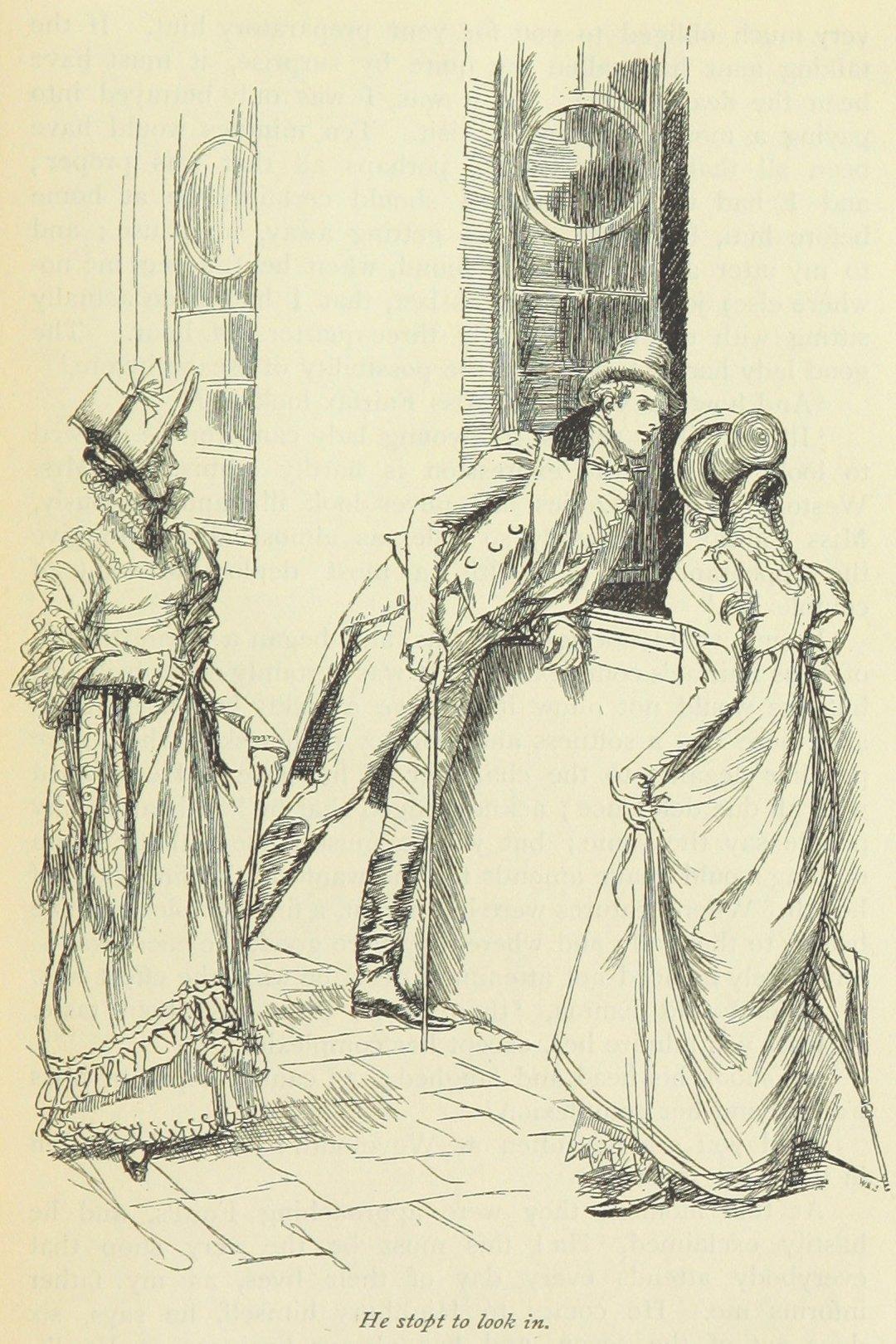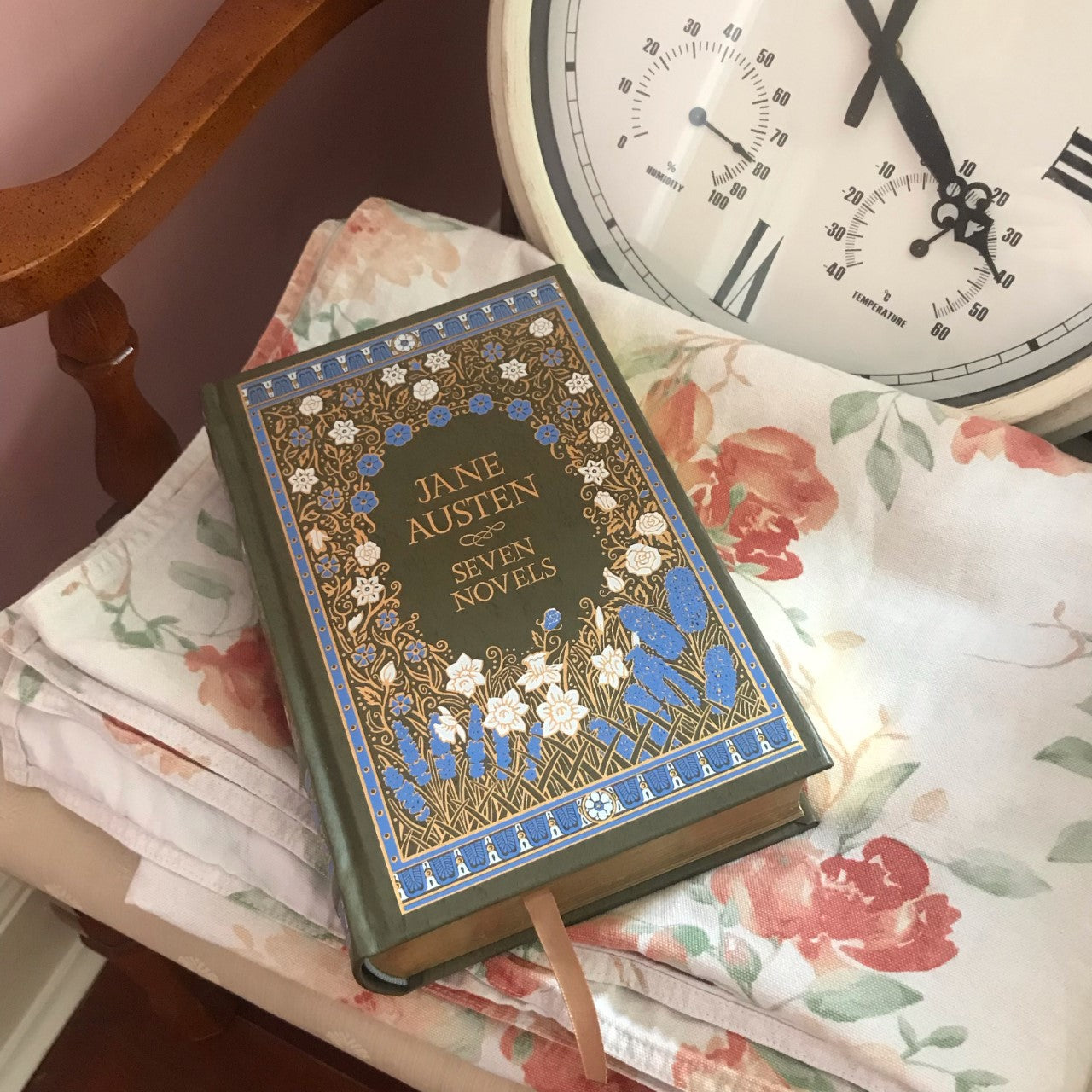On rereading Austen

For two years now, I have reread a Jane Austen novel every time I’ve been on an extended break from university, both at Christmas and over the summer, which has become a ritual I look forward to almost as much as the time off. I first read all of Austen’s novels when I was twelve or thirteen, and now, eight or nine years later, with fresh eyes and degree-induced literary analysis skills, it’s been interesting to see how my perspective of Austen’s canon has changed and evolved over the past decade.
When I first read the books back in middle school, it was the fun-loving spirit of little-sister characters like Margaret Dashwood and Lydia Bennet that I most closely related with, meanwhile looking up to Austen’s heroines longingly as though they too were my older sisters. Now, however, I am the same age as them, older even, and continuing to outgrow them. Back then, they seemed like real adults to me, ones who had financial difficulties and could go to big parties and get married. But now that I’ve finally reached the age of many of these characters, I have come to realise just how young they actually are. I myself, living in the twenty-first century, still feel far too young to settle down and marry, though two centuries ago I perhaps already would have. One part of me is relieved that that kind of commitment has not yet occurred in my life, and yet another part wonders if I ought to be distressed that Elizabeth Bennet was already married to Mr Darcy at my age, while I only have a few months left until I pass that threshold and turn twenty-two.
As a young teenager, I was always so swept up in the romance of Austen’s books, but as an adult I’ve really come to appreciate the nuances of all of the relationships she crafts, that keen insight into the milieu of her characters from the most petty to the most tender of interactions. In some of the novels, I’ve even grown to feel that some of her heroes, whom I had once so idealised, don’t even truly deserve her heroines. Both Edward Ferrars and Edmund Bertram in particular come to mind, as both frequently neglect Elinor Dashwood and Fanny Price respectively, only to finally come to their senses in the end.
With every reread of a particular book you take something new away from it depending upon the stage and circumstances of your life at the time. And it makes me wonder as I grow older what else Austen may reveal to me in the future. Will the wisdom of Mrs Gardner and Mrs Weston come to appeal to me more than the witticisms of Lizzy Bennet or the mischief of Emma Woodhouse? Will the anxieties of motherhood some day make Mrs Bennet’s hysterics more relatable to me than Anne Elliott’s pining for Captain Wentworth, or Marianne Dashwood’s for Willoughby? I mean really, at this rate, by the end of my life it’ll perhaps be Mr Woodhouse whom I relate to most, terrified of illness and perpetually insistent on having a good cosy fire to keep warm.
It is odd to me that I have reached an age where I can truly begin to reflect upon the past with such clarity, hard to believe I’ve had nearly two decades now of formulating legitimate enough thoughts and opinions to reflect back upon. But I suppose this is what getting older is: always thinking back, always standing in astonishment at how far removed you’ve somehow become from whom you once were. For me, rereading Austen over the past several years has truly been an indulgent venture for me into that posterior self-discovery.
Austen only has six novels, but it is the beauty of the richness of her texts, so full of small details, that have allowed them to endure and have also provided even her most seasoned readers with a lifetime’s worth of joy from them.Out of any that I’ve ever come across, they are, perhaps, some of the most re-readable works in English literature. You always know there will be a happy outcome, but, fortunately, that doesn’t make the journey to it any less pleasurable. I also take comfort in the knowledge that her books will always be accessible to me, always sitting on my shelf waiting for me to return to them wherever life may take me. If they’re old friends now, I can only imagine how intimate we’ll become decades down the line, their pages worn soft, their covers all smudged, and their spines cracked with fond use.
Lauren Kammerdiener is an American student in Scotland who's followed her love of Austen all the way across the pond. She hopes to some day take her love of literature and her knack for editing into the professional publishing world, but is perfectly content indulging in her studies in Art History and English for now, travelling wherever and reading whatever she can in the meantime.
If you don't want to miss a beat when it comes to Jane Austen, make sure you are signed up to the Jane Austen newsletter for exclusive updates and discounts from our Online Gift Shop.



Leave a comment
This site is protected by hCaptcha and the hCaptcha Privacy Policy and Terms of Service apply.